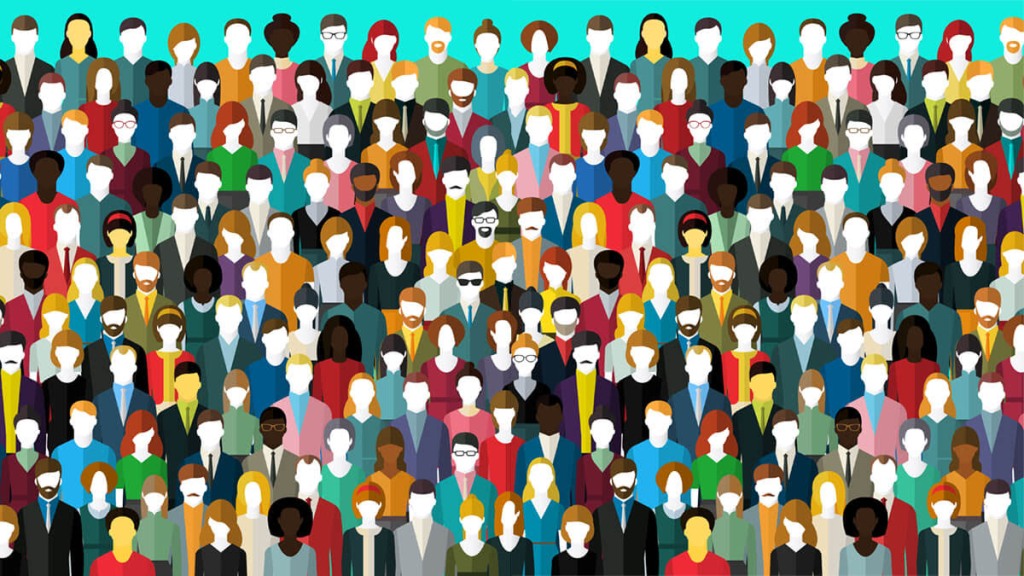
Biometric forensics tells us there are at least 8 unique ways each human being differs from the other. From your eye colour to the shape of your ear, to fingerprints, the shape of your tongue, iris, your teeth (the arrangement of your teeth), heartbeat, your voice, lips etc. That’s 8 individual points of uniqueness for every single individual. 7 billion people, no matter how closely genetically related, each is still unique.
Now here’s what interests me about this. Each of this unique points of reference is characterised by patterns. For example the patterns of whirls and whorls on your fingers is what makes your fingerprint unique to you; the average human heart will beat 2.5 billion times in its lifetime but yours will beat in a slightly different pattern to the next person beside you, whether stranger or family; the pattern of wrinkles on your lips is as also unique as your fingerprints. So this means that, physically, at first people are made up of patterns.
Now because we’re uniquely designed as social creatures, we form groups at various levels and in the course of our interactions in these different groups patterns begin to emerge in behaviour. Individually and collectively.
Patterns are important because they define a course of action. They provide predictability and create a path that evaluation can actually follow to arrive at a defined destination.
This is where I’m particularly interested in because it hit me some days ago that people probably don’t pay as much attention to patterns as they should.
They don’t pay attention to the patterns they form in response to external stimuli neither do they pay attention to patterns the people they interact with exhibit. External stimuli like breakups change people, the same way genuine love changes people; failure is brought about by and also impacts patterns of behaviour and the same applies to success.
A husband that will be abusive (physically and emotionally) will have exhibited signs during the relationship, same with a future abusive wife; with a lot of suicides there are patterns to behaviour that suicide victims exhibit before their death, same thing too for suicide bombers (as always there are exceptions) so people have been trained to spot these patterns to prevent either the suicide or the explosion of the bomb.
What am I saying? People are patterns. Patterns formed both deliberately and unconsciously. Your interaction with people will be significantly improved when you pay more attention to this.
Key to this is a significant dose of (self) honesty and candid (self) evaluation. You’d be surprised how willingly people lie to themselves or genuinely WANT to be lied to just so they don’t have to deal with what’s in front of them. Being able to evaluate your own behaviour candidly and also being honest enough to yourself to accept what should remain and what needs to be taken out to achieve what you want to achieve are essential. And also being able to observe who you interact with and evaluate their behaviour honestly and adjust accordingly.
In other words, taking personal responsibility. For example you’re 3 months into a relationship and he’s physically abused you 3 times already. On your own end you may have done enough to provoke a reaction (you must be honest enough to admit that) and you must also be aware enough to realise that this guy probably has a very short temper and little self control. Or you’ve had a few otherwise normal arguments with your madam and in the course of those arguments she’s thrown a pot at you, chased you around your living room with a hot curling iron, broken your TV all the while claiming she’s a goddamn capricorn. She’s not a “little” crazy. She’s not “feisty”, she’s nuts. And one day she’s going to burn all your shit down because she can’t get her way. Or she distracts you with sex whenever a potentially dangerous conversation needs to be had. Patterns. There are a lot of more innocuous examples I can use.
Or your relationships just don’t last. And I’m not limiting this to romantic relationships, you find out you cannot maintain your friendships, especially the ones you should. It might be time to sit down and reflect, run through each relationship and see how it ended (like I said earlier, self honesty here is essential) and you might find out that the common factor is you. Or maybe it’s not your behaviour, maybe your selection process is just flawed. Or maybe something about you attracts the wrong kind of people. Or maybe nothing at all. Either way, evaluate.
Some things don’t need to be broken in prayers at “Shiloh”, you just need to break a bad set of behaviours. A lady probably can’t get married because some “village people” won’t let her be, so her engagements keep falling through; it could also very well be because she has the personality of rotten fish and no sane man wants to deal with that till death do them both part. Or even worse, it could be both, with the former leading to the latter. Either way she’s screwed and won’t know it till she evaluates.
The truth at the end of the day is that taking responsibility is hard. Its easier to blame someone or something else for a character flaw (or set of character flaws) or even not acknowledge it altogether than to see it (or them) for what they are and take the steps to deal with them.
People are patterns. Pay attention.
Ariel

